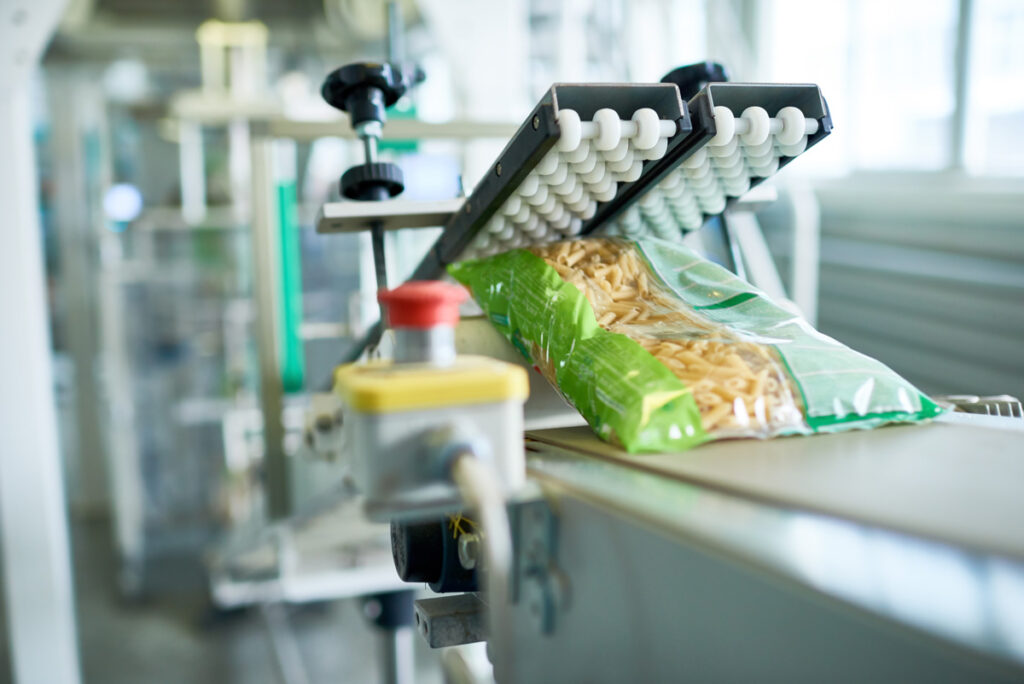Food packaging in El Paso plays a critical role in ensuring the safety, quality, and longevity of food products. It acts as a barrier against contamination, preserves freshness, and provides consumers with essential information about the product. Given its importance, food packaging is subject to rigorous regulations and standards globally.
Conveyors & Materials provides food packaging equipment in El Paso to ensure you meet regulations. Contact us online or call (915) 584-5729 today to learn more.
The Importance of Food Packaging Regulations
Food packaging regulations are designed to protect public health by ensuring that packaging materials are safe and do not pose any risk to consumers. These regulations cover a broad spectrum of aspects, including the materials used in packaging, labeling requirements, and environmental impacts.
Health and Safety
The primary concern of food packaging regulations is the health and safety of consumers. Packaging materials must be non-toxic and should not react with the food they contain. For instance, certain plastics can leach harmful chemicals into food, particularly when heated. Regulations ensure that such materials are either banned or strictly controlled.
Environmental Impact
With growing environmental awareness, regulations also address the environmental impact of food packaging. This includes the recyclability of packaging materials, the use of sustainable resources, and the reduction of plastic waste. Regulatory bodies encourage the use of biodegradable and compostable materials to minimize the environmental footprint.
Consumer Information
Regulations mandate that El Paso food packaging provides clear and accurate information about the product, including ingredients, nutritional content, expiration dates, and potential allergens. This transparency is crucial for consumer safety, especially for individuals with dietary restrictions or allergies.
Key Regulatory Bodies and Standards
United States: FDA and USDA
In the United States, the Food and Drug Administration (FDA) and the United States Department of Agriculture (USDA) are the primary regulatory bodies overseeing food packaging.
FDA: The FDA regulates food contact materials under the Federal Food, Drug, and Cosmetic Act (FD&C Act). It sets guidelines for substances used in food packaging to ensure they do not pose a health risk.
USDA: The USDA oversees the packaging of meat, poultry, and egg products. It ensures that packaging materials meet safety standards and that labeling provides accurate product information.
European Union: EFSA
The European Food Safety Authority (EFSA) is responsible for food safety regulations in the European Union. The EFSA conducts risk assessments on food contact materials and establishes guidelines for their use.
EU Framework Regulation (EC) No. 1935/2004: This regulation sets the overarching principles for materials intended to come into contact with food. It ensures that materials do not release harmful substances into food.
Regulation (EU) No. 10/2011: This regulation specifically addresses plastic materials and articles intended to come into contact with food. It outlines the permitted substances and their migration limits.
International Standards: ISO
The International Organization for Standardization (ISO) develops international standards, including those related to food packaging. ISO standards ensure consistency and safety across different countries, facilitating international trade.
ISO 22000: This standard specifies requirements for a food safety management system, including packaging. It ensures that food safety hazards are controlled throughout the supply chain.
ISO 18602: This standard focuses on packaging and the environment, providing guidelines for optimizing the use of resources and minimizing environmental impact.
Compliance and Enforcement
Compliance with food packaging regulations is mandatory for manufacturers. Regulatory bodies conduct regular inspections and audits to ensure that packaging materials meet the required standards. Non-compliance can result in severe penalties, including fines, product recalls, and legal action.
Testing and Certification
Manufacturers must conduct thorough testing of packaging materials to ensure compliance. This includes:
Migration Testing: Ensuring that chemicals from packaging materials do not migrate into the food in harmful amounts.
Material Testing: Verifying that materials used in packaging are safe and approved by regulatory bodies.
Labeling Compliance: Ensuring that all information provided on the packaging is accurate and meets regulatory requirements.
Certified laboratories often carry out these tests, providing manufacturers with the necessary documentation to prove compliance.
Documentation and Traceability
Regulations require detailed documentation and traceability of packaging materials. Manufacturers must maintain records of the materials used, test results, and certifications. This documentation is crucial during regulatory audits and in the event of a product recall.
Future Trends in Food Packaging Regulations
Sustainable Packaging
As environmental concerns continue to rise, there is a significant push towards sustainable packaging solutions. Regulatory bodies are likely to introduce stricter guidelines on the use of plastics and promote the adoption of eco-friendly materials.
Technological Advancements
Advancements in technology are paving the way for innovative packaging solutions. Smart packaging, which includes features like indicators for freshness and temperature control, is gaining traction. Regulations will need to evolve to address the safety and standardization of these new technologies.
Global Harmonization
With the globalization of the food supply chain, there is a growing need for harmonized regulations across countries. Efforts are underway to create international standards that ensure consistency and safety in food packaging worldwide.
Equipment for Food Packaging in El Paso with Conveyors & Materials
Understanding the regulations and standards in food packaging in El Paso is crucial for ensuring the safety and quality of food products. These regulations protect consumers from potential health risks, promote environmental sustainability, and provide essential information about the products we consume. As the industry evolves, staying informed about regulatory changes and advancements in packaging technology will be key for manufacturers and consumers alike.
To learn about the food packaging equipment at Conveyors & Materials, call (915) 584-5729 today.
